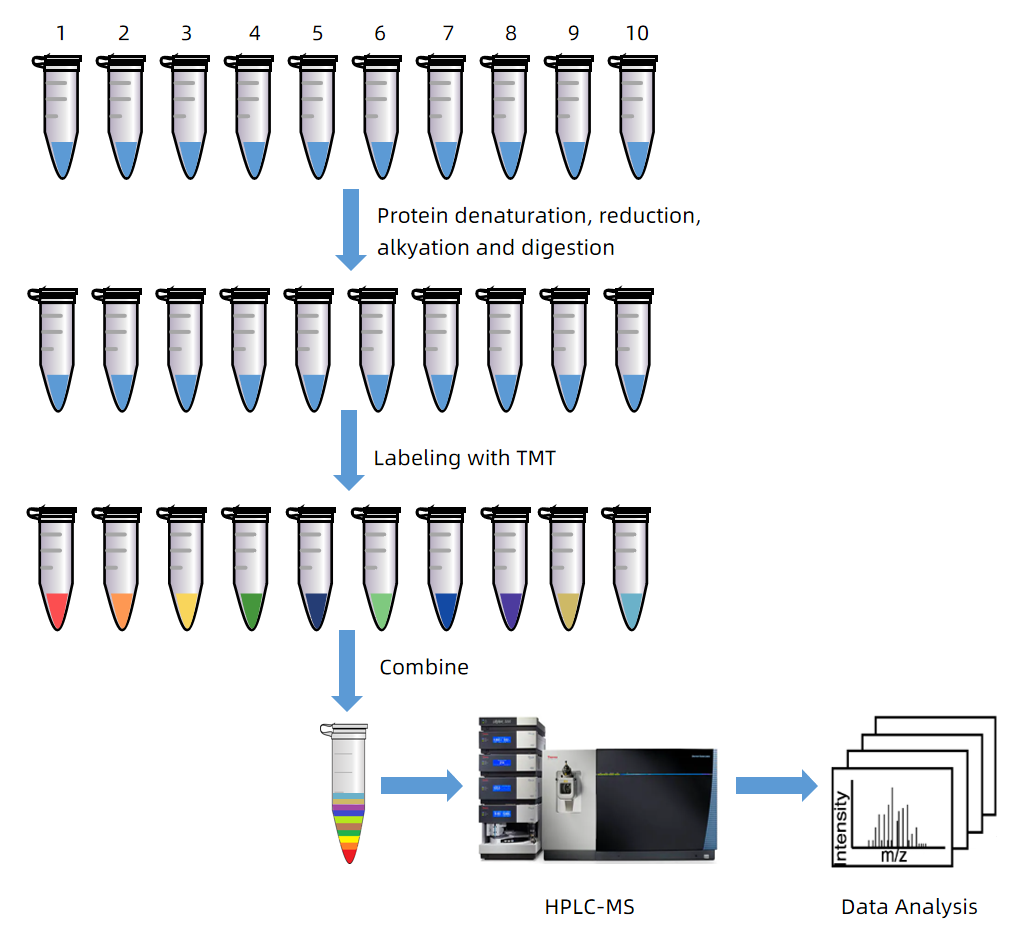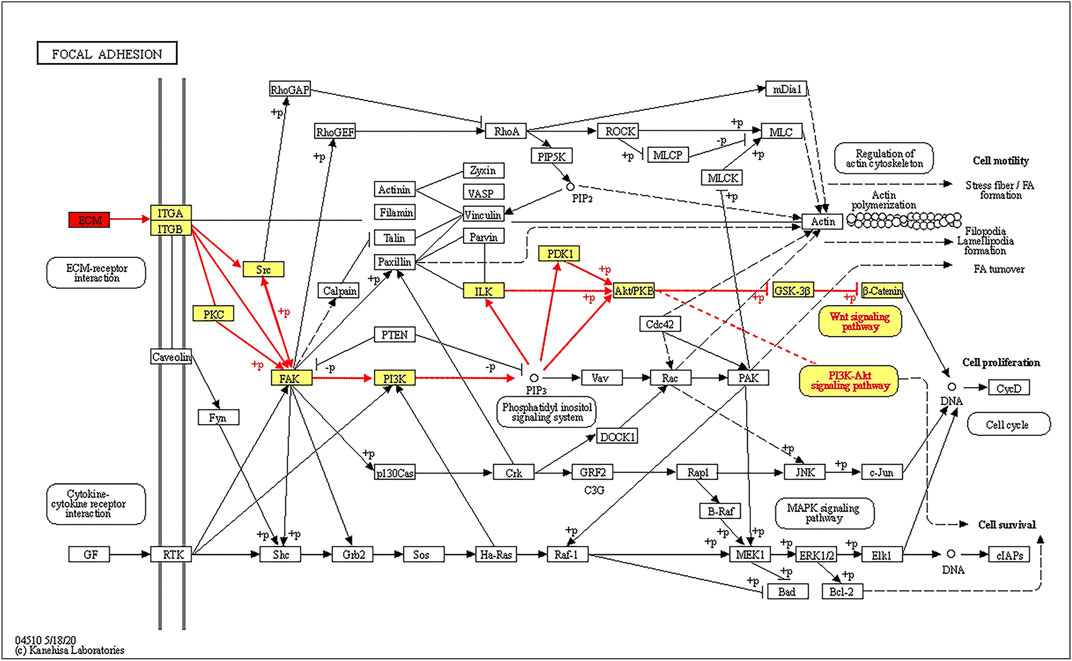TMT Proteomics Service
- Low-complexity samples: Gel spots or bands, approximately 1-2 cm in length.
- Medium-complexity samples: Protein mixtures, including column-purified samples.
- Moderate-to-high complexity samples: Protein mixtures such as IP-derived samples, secreted proteomes, or subcellular organelles (e.g., mitochondria, endoplasmic reticulum, lysosomes).
- High-complexity samples: Whole cell lysates, tissues.
TMT proteomics is an efficient, high-throughput quantitative method that employs chemical tags to label peptides, enabling the simultaneous quantification of up to 18 samples. This capability significantly enhances experimental efficiency and ensures data consistency across samples, establishing TMT proteomics as one of the most widely adopted core technologies in proteomics research.
By integrating high-resolution mass spectrometers(e.g., Orbitrap series) with advanced data analysis platforms, MtoZ Biolabs’ TMT proteomics services offer precise quantification of protein expression levels across multiple samples. This service is extensively applied in research areas such as disease mechanisms, drug development, and biomarker discovery. With state-of-the-art platforms and rigorously standardized processes, we deliver high-quality, reproducible data to support researchers in efficiently achieving their scientific objectives.
Analysis Workflow

Figure 1. Workflow for Relative Quantification Using 10 plex TMT
Service Advantages
1. Advanced Analysis Platform
MtoZ Biolabs established an advanced TMT proteomics platform, guaranteeing reliable, fast, and highly accurate analysis service.
2. High Throughput and Multiplex Quantification
Supports simultaneous labeling and quantification of up to 18 samples, enhancing efficiency and reducing errors.
3. Adaptable for Complex Samples
Suitable for analyzing complex biological samples, from cell lysates to biofluids, revealing dynamic proteomic changes.
4. One-Time-Charge
Our pricing is transparent, no hidden fees or additional costs.
5. Customized Service
Tailored to the specific research needs of our clients, we offer flexible experimental design and personalized data analysis to ensure the achievement of research goals to the fullest extent.
Sample Submission Suggestions
For more specific sample submission requirements, please consult our technical team.
Applications
The TMT proteomics service plays an essential role in various scientific and industrial fields, including:
1. Disease Mechanism Research
Analyze protein expression changes to uncover molecular mechanisms and provide scientific evidence for developing therapeutic strategies.
2. Drug Development and Target Validation
Evaluate the effects of drug treatment on protein expression and identify key targets to accelerate drug discovery and efficacy studies.
3. Biomarker Discovery
Identify and validate potential biomarkers for disease diagnosis and treatment, supporting precision medicine and personalized therapies.
4. Dynamic Proteomics
Compare protein expression at different time points or conditions to explore dynamic biological processes and signaling pathways.
5. Biopharmaceutical Quality Control
Monitor protein purity and expression levels in biologics to ensure consistency and product quality.
6. Basic Biological Research
Quantify proteins on a large scale to investigate metabolic pathways, cellular signaling networks, and molecular interactions.
Case Study
A study employing TMT proteomics demonstrated that low-intensity pulsed ultrasound (LIPUS) alleviates hypoxia-induced damage in temporomandibular joint osteoarthritis (TMJ OA). The analysis revealed that LIPUS inhibits extracellular matrix (ECM) degradation, reduces angiogenesis, and enhances cell migration. Key proteins, including TIMP1 and VEGF, were identified as playing critical roles, providing potential molecular mechanisms and biomarkers for the treatment of TMJ OA with LIPUS.

Du, S. et al. Front. Pharmacol. 2021.
FAQ
Q1: What are the primary advantages of TMT proteomics over other quantitative proteomics methods?
Compared to methods like SILAC, TMT proteomics offers superior multiplexing capabilities, enabling simultaneous analysis of up to 18 samples. It also provides greater sensitivity for detecting low-abundance proteins and ensures consistent data through isotope labeling, reducing variability across samples.
What Could be Included in the Report?
1. Comprehensive Experimental Details
2. Materials, Instruments, and Methods
3. Total Ion Chromatogram & Quality Control Assessment
4. Data Analysis, Preprocessing, and Estimation
5. Bioinformatics Analysis
6. Raw Data Files
MtoZ Biolabs not only offers TMT proteomics service but also provides complementary proteomics solutions, such as SILAC and label-free approaches, tailored to your research needs. Contact us today to learn more!
MtoZ Biolabs, an integrated chromatography and mass spectrometry (MS) services provider.
Related Services
Quantitative Proteomics Service
How to order?







